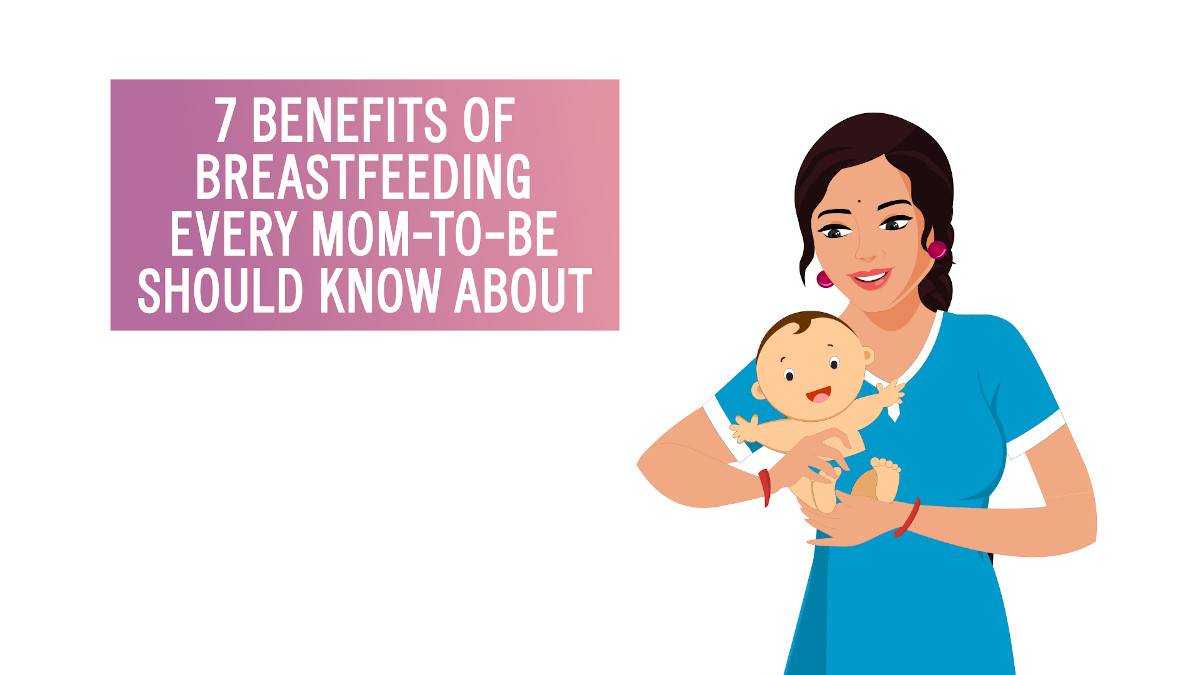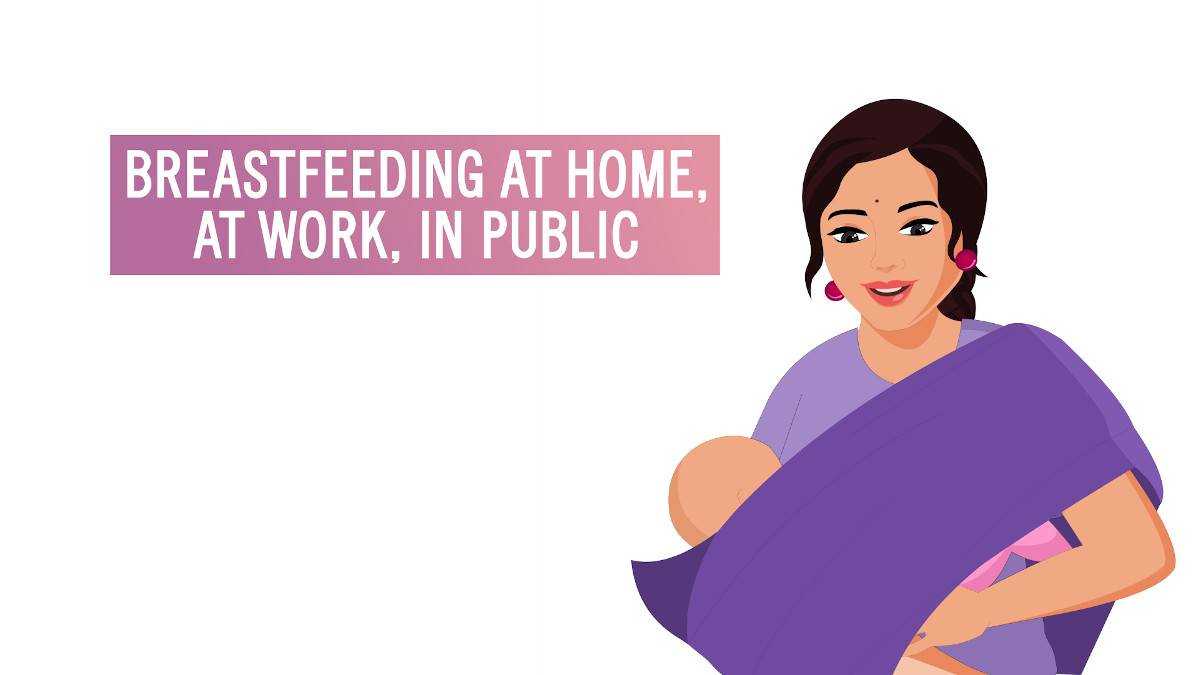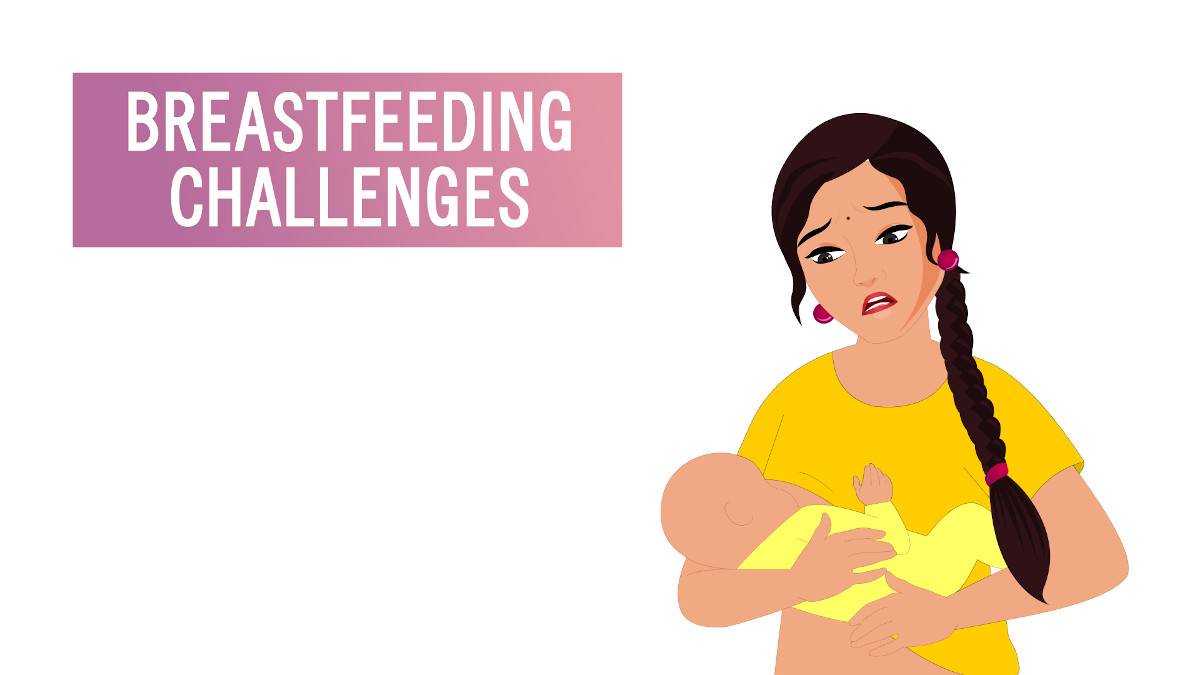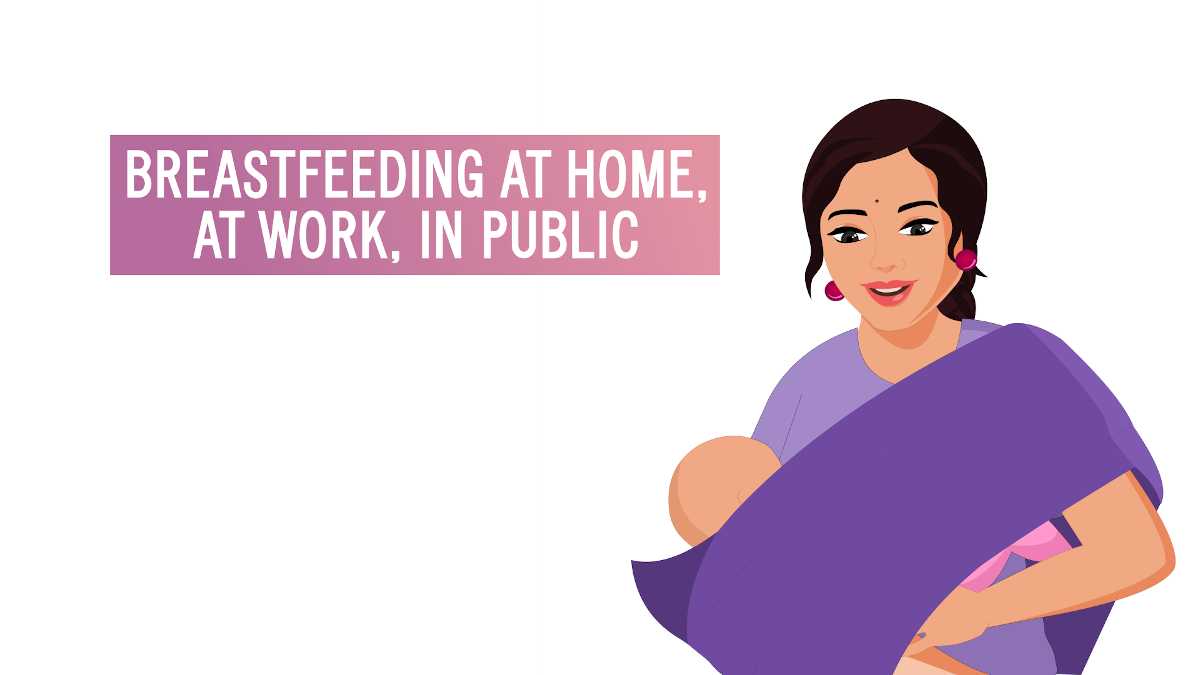Ideal food for the newborn baby is, of course, milk.
Milk is not just species-specific, but the composition of the milk changes with the gestational age too. Cow’s milk is best for the calf, Goat’s milk is best for the kid, Tiger’s milk is best for the cub, and the mother’s milk is best for the human baby. The composition of human milk changes as the pregnancy advances – it is different if the baby is born prematurely.
Post-delivery, probably the most significant decision that the mother takes, is to breastfeed her baby. The decision to breastfeed would have been made much earlier during her pregnancy. Though the decision to breastfeed is entirely the mother’s, it may be influenced by opinions, experiences shared by family/friends, and constant hammering from the media. All healthcare professionals should give her the correct scientific information about feeding the baby and make the correct choice.

Every mother is counseled about the feeding choices she has for her baby, usually in the antenatal period at around 28 weeks of pregnancy, especially in a ‘baby-friendly’ maternity set-up/service. The mother is most amenable to suggestions regarding the health of her baby during her pregnancy. Providing correct information about breastfeeding and destroying myths is of utmost importance to help her make correct nutritional choices for her baby, which will decide the baby’s health in the future.
The advice given to every mother is:
- Initiating breastfeeding within one hour of the baby’s birth, preferably by “breast crawl.”
- Exclusive breastfeeding for the first six months (no outside milk/ juices or even water)
- Start proper homemade complementary foods after six full months.
- Continue breastfeeding for at least two years.
Alternatives to breastfeeding should be discussed only in specific situations.
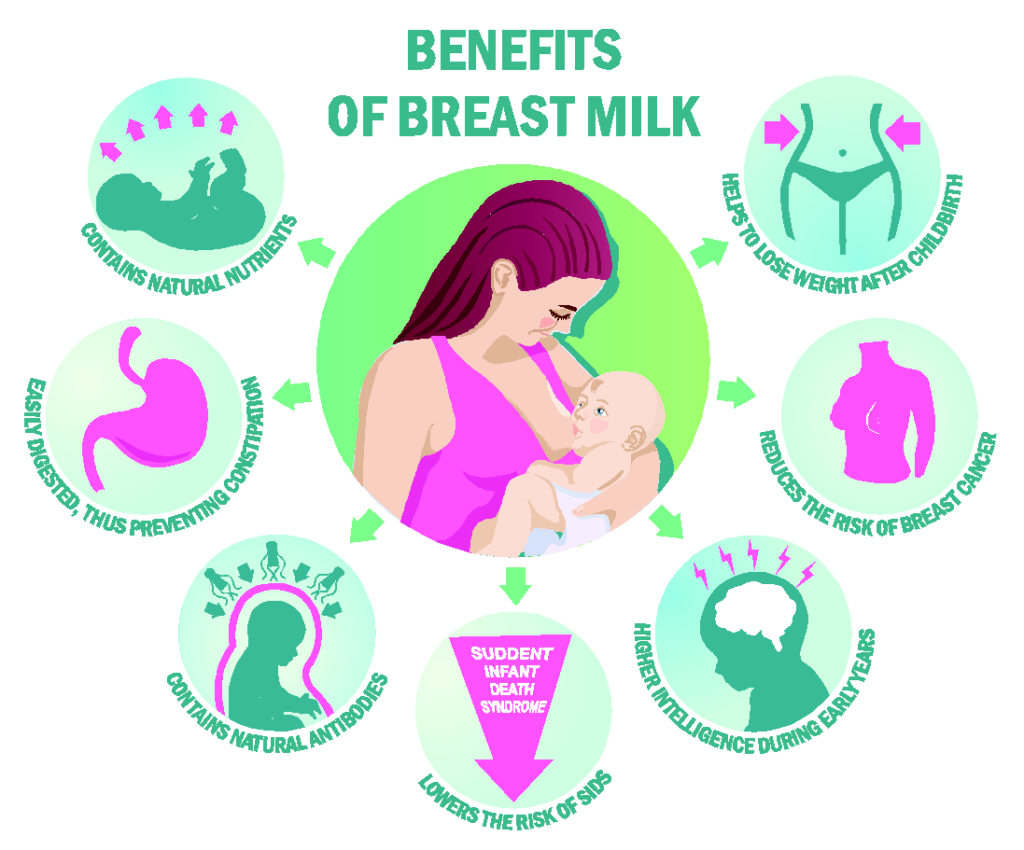
Advantages of breastfeeding to the baby and the mother
Breast milk is a completely natural food for the baby. It is the healthiest and safest nutrition for your baby. All the nutrients are in exact proportion for the optimal growth and development.
- Easily digestible
- Germ-free as it is transferred directly from the mother to the baby
- It provides immune factors that provide protection against infections e.g., pneumonia, diarrhea, etc.
- At the right temperature
- Antibodies present in breast milk help build the baby’s immune system considerably and protect them from potential illnesses and infections.
- Protects against asthma and allergies
- Protects against infections – Ear infections, intestinal disorders/diarrhea, respiratory problems, and viral infections like cold, flu
- Protects against obesity, hypertension, heart disease, and diabetes in later life
- Prevents SIDS – sudden infant death syndrome
- Makes child more intelligent – improves IQ.
- Decreases risk of some cancers
- Encourages Stronger mother-infant bonding
- Better neurosensory, jaw, and tooth development
How does breastfeeding help the mother?
Apart from enforcing an emotional bond with the baby, breastfeeding helps the mother in more than one way:
- It facilitates early expulsion of the placenta and reduces excess post-partum bleeding.
- It helps the uterus to contract faster to the pre-pregnancy state and the body to heal after the baby’s birth.
- While the baby breastfeeds, the hormone oxytocin (the Love Hormone) is released, rendering a calming and relaxing effect.
- Convenient and requires no preparation
- Free of cost.
- It helps reduce the weight gained during pregnancy faster by losing fat through breast milk and helping her get back in shape in a healthier way.
- It helps to delay the next pregnancy, but the mother should not depend only on this method as the sole method of contraception.
- Decreased risk of ovarian, breast, and uterine cancers
- Ensures stronger bones – Protects from post-menopausal osteoporosis in later life.
- Breastfed babies fall sick less often – Hence family saves on medical expenses.
Advantages to the Society
Declining breastfeeding rates would increase the demand for animal/processed milk. This can damage the environment. Hence breastfeeding is not just environment friendly but also helps the overall development of the society and the nation.
Disadvantages of Formula Milk
A few years ago, we never had to discuss ‘Formula Milk.’ But in modern times, it has become mandatory since to-be-mothers are bombarded with advertisements showing bony babies in the print and audio-visual media.
| Constituents gm% | Human Milk | Cow’s Milk |
| Carbohydrates (Lactose) | 7% | 4’8% |
| Proteins | 0.9% | 3.3% |
| Fats | 3.8% | 3.8% |
| Salts (Na/ Cl/ K) | 7/11/13 | 22/29/35 |
| Minerals (Ca/ Ph) | 34/15 | 117/ 92 |
| Iron | 4 (50% absorption) | 4 (10% absorption) |
| Water | 88% | 88% |
| Vitamins | Adequate | Inadequate |
| Immune Factors | ImmunoglobulinWBCBifidus factorLactobacillus BifidusLactoferrinLysozyme(all present) |
Concluding remarks
The aim of every Maternity Service is to see that every baby is breastfed after birth. Messages given to every mother are
- The mother should start breastfeeding within an hour of giving birth, preferably by “breast crawl.”
- Exclusive breastfeeding for the first six months (no outside milk/ juices or even water)
- Start proper homemade complementary foods after six full months.
- Continue breastfeeding for at least two years.
However, breastfeeding is not intuitive knowledge. It needs to be learned and taught. The best way is to introduce the idea to the expectant mother in an interactive Mother Support Group meeting in the antenatal period and teach her how to breastfeed the baby after birth. Here the lactation consultant/ counselor i of great help. Every mother ought to hold her baby, attach and position the baby on the breast, be confident about breastfeeding her baby, and express milk from engorged breasts before discharge. During discharge, the mother should be told about how to monitor her baby’s health and monitor feeding adequacy by measuring urine output and weight gain. With the help of a lactation counselor, the maternity service should monitor the baby until breastfeeding is established.


